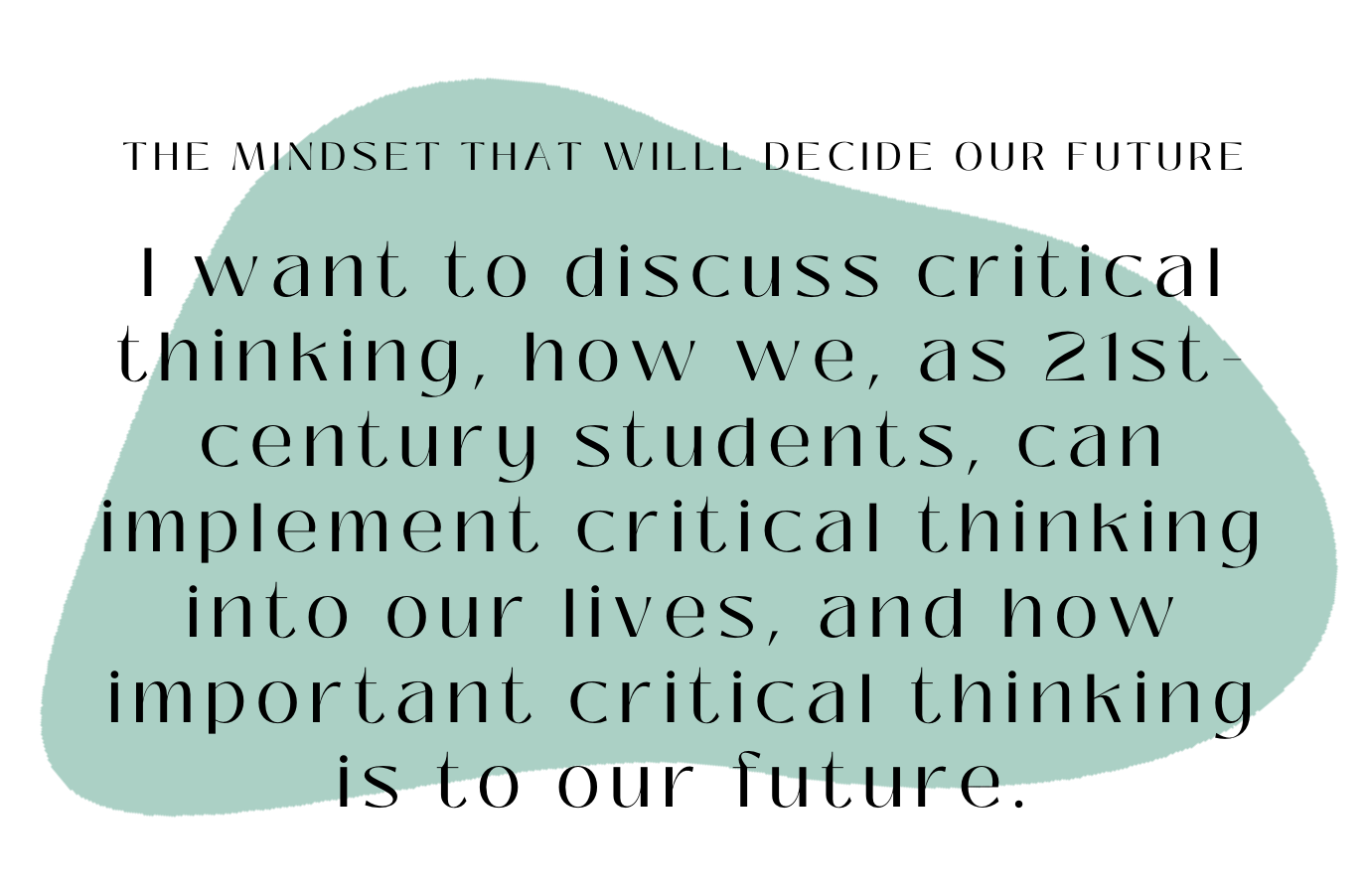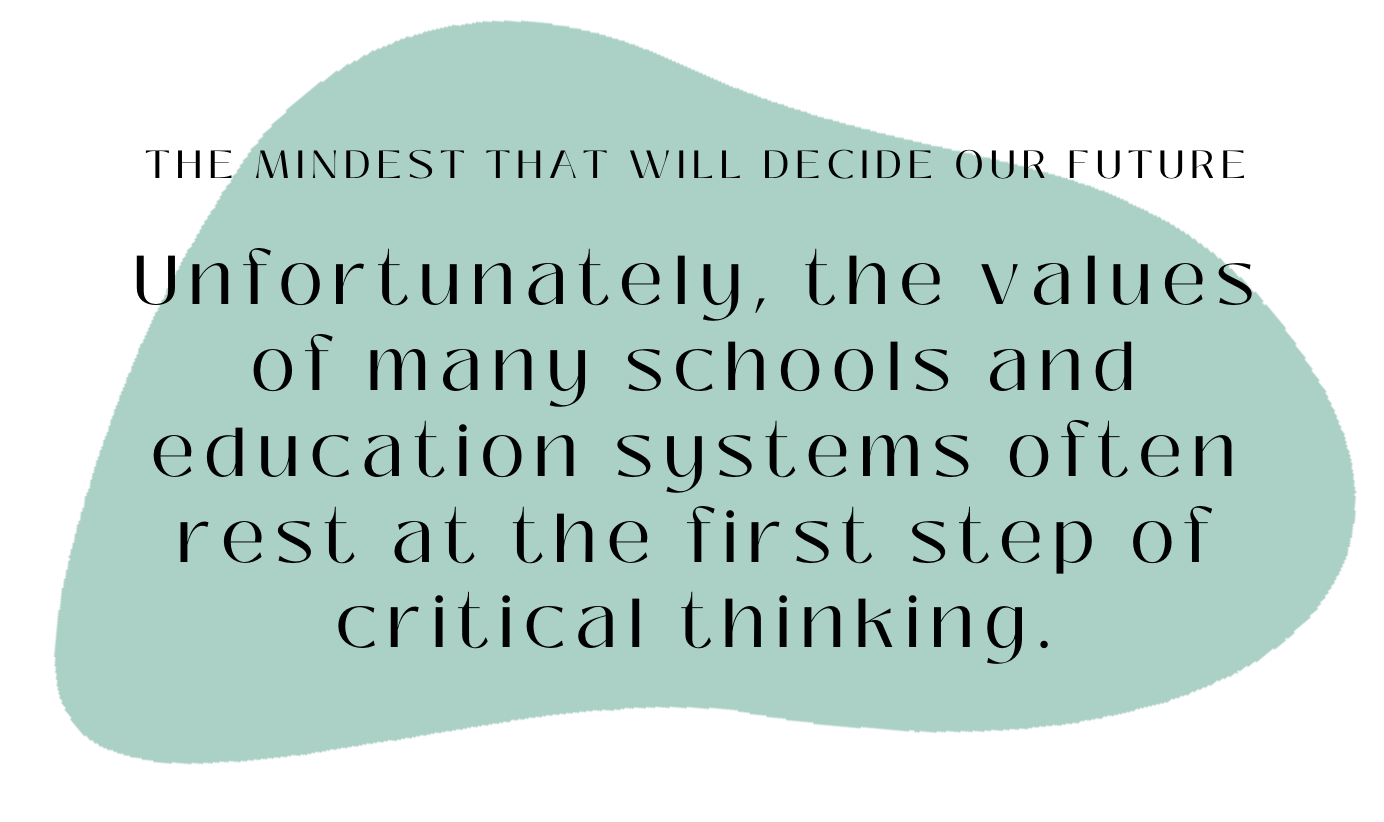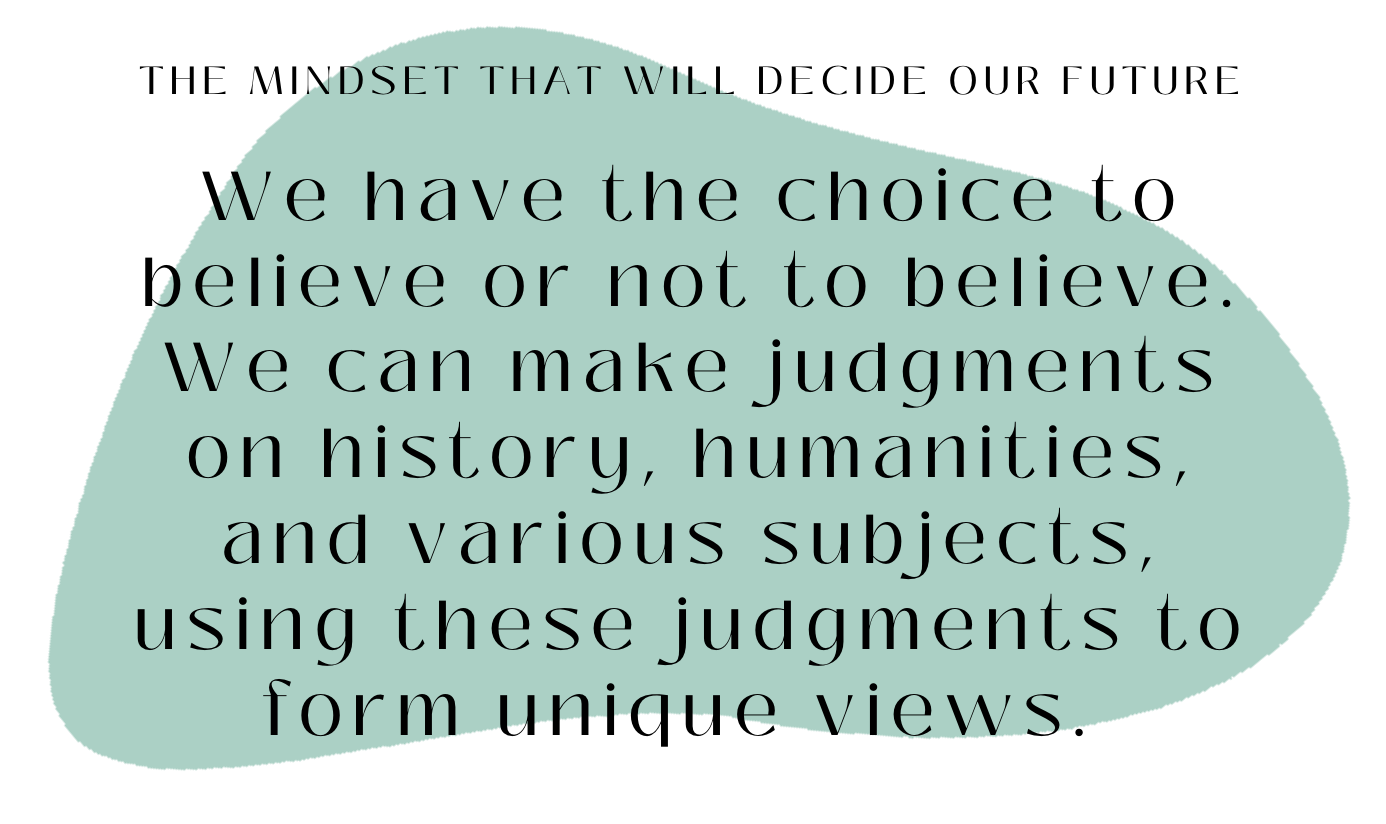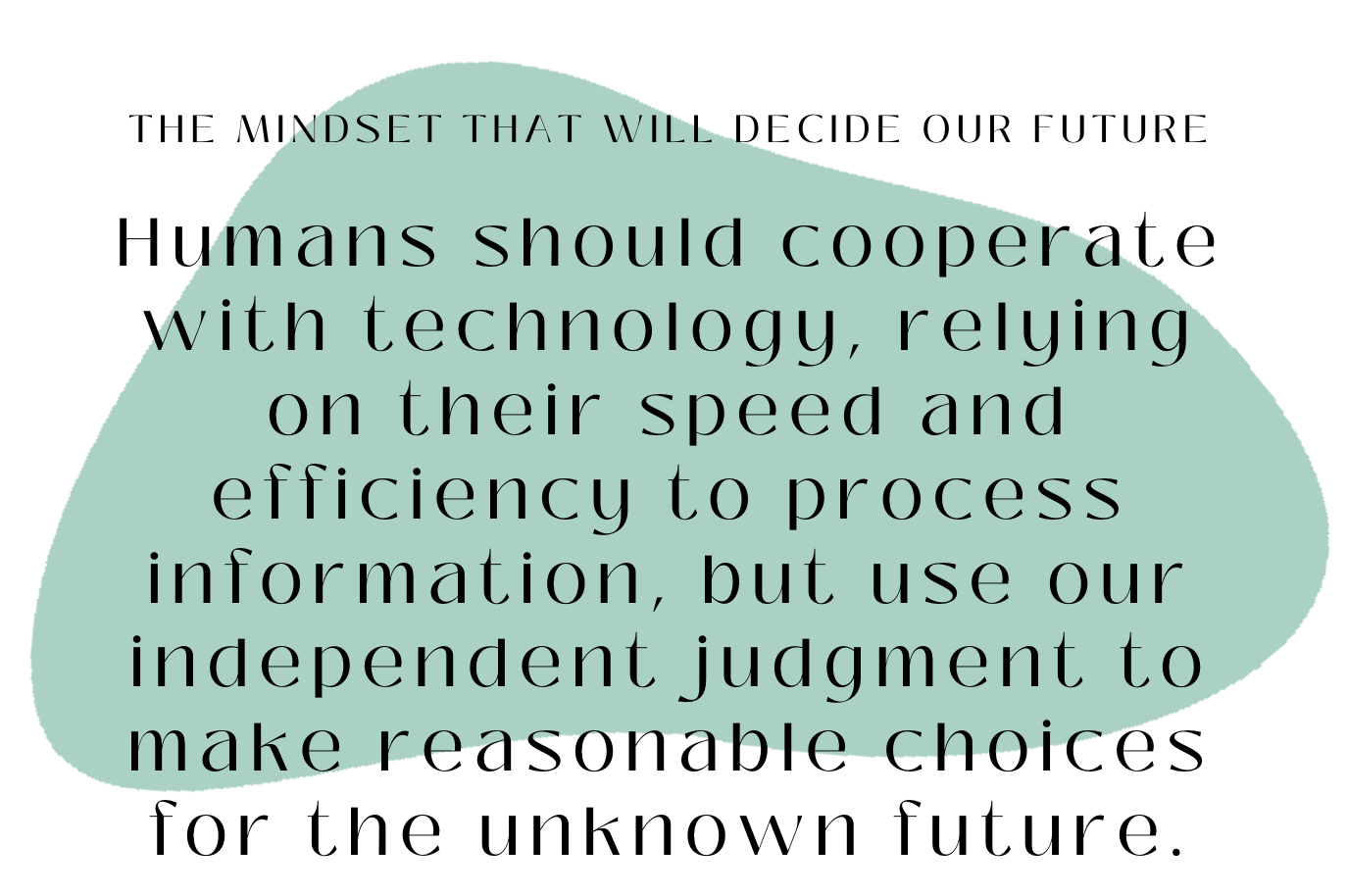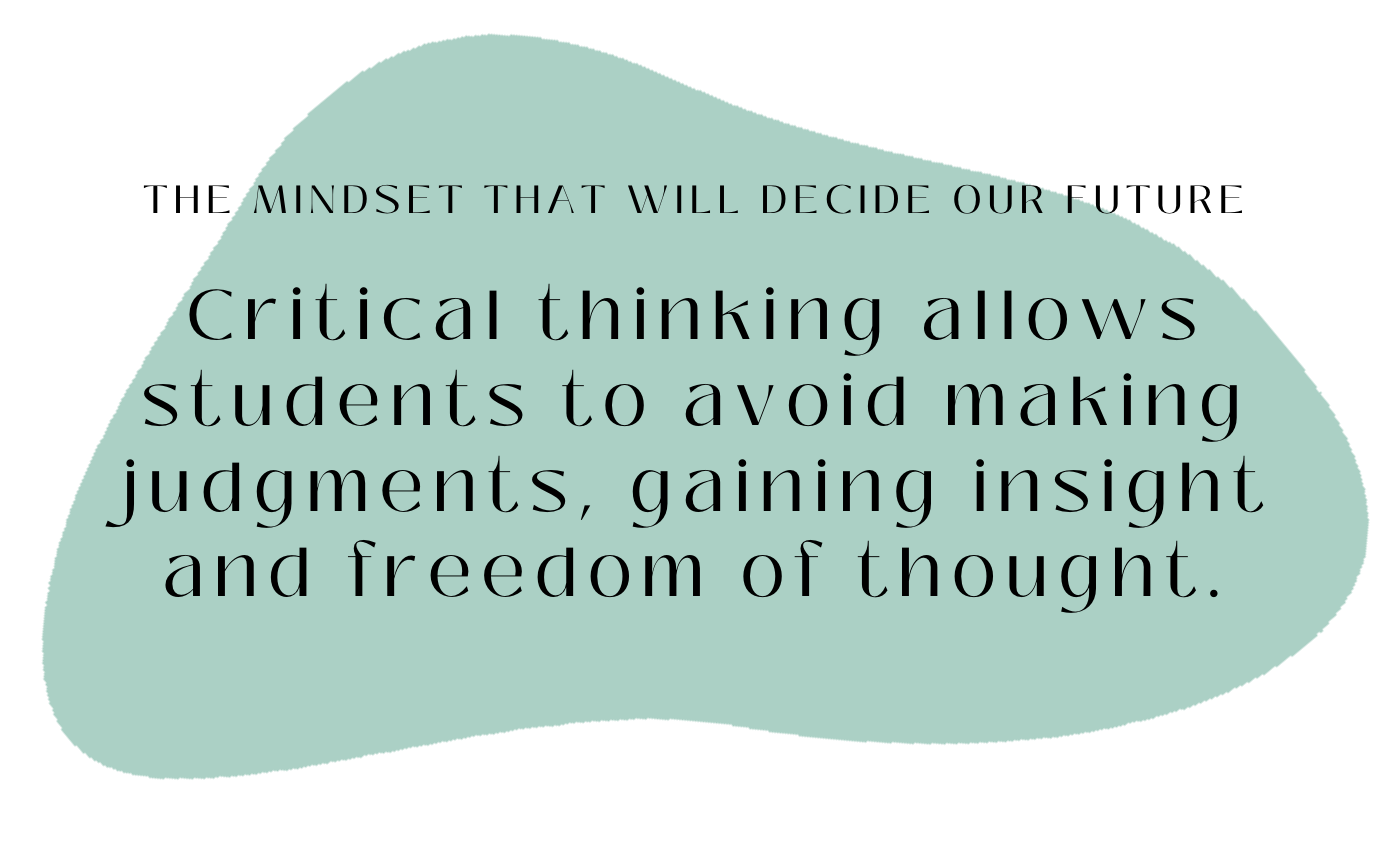the mindset that will decide our future
the mindset that will decide our future
There is no doubt that creativity is the most important human resource of all. Without creativity, there would be no progress, and we would be forever repeating the same patterns.
- Edward De Bono
A few months ago, I finished the book "Educated." The main character Tara is born into a Mormon family with strict beliefs about god, gender rules, and violence. Tara's father does not allow Tara and her siblings to attend any government-run facilities, including schools and hospitals, due to his beliefs in the "manipulating" government. Tara's father believes that as long as his children pray and are taught about religious beliefs, they will have as deep of an understanding of the world as they would if they went to school. I believe everyone reading this will disagree strongly with Tara's father's beliefs due to the information and perspective about the world we have been taught. Society and those around us all believe that the available education given to us by this society and the government is a crucial part of our growth. But in Tara's entire childhood, the only belief and perspective she has on the world is constructed by her father, as no one has ever been around to contradict what her father says, teaching her different values about the world. Her father is the only source of information she has on the world, thus strongly influencing Tara's beliefs.
The difference between Tara and us is that most of us have grown up in a community with different sources of information. Whether from the Internet, school textbooks, or friends, we constantly receive different perspectives and beliefs. Such an environment makes our worldview much more complete and comprehensive than Tara's. But in such an environment with so many different sources of information, a mindset of critical thinking is crucial. It allows us to form our judgments and gain a complete understanding of the information and arguments we are exposed to. In this blog post, I would like to discuss critical thinking, how we, as 21st-century students, can implement critical thinking into our lives, and how important critical thinking is to our future.
Before understanding the importance of critical thinking, I would like to define what it is. Critical thinking refers to making critiques and decisions based on examining the information one acquires. In other words, critical thinking is to sort out the information we learn and hear, discern whether the information is correct, conform to our known concept of the world, and make a decision.
Unfortunately, the values of many schools and education systems often rest at the first step of critical thinking - obtaining, organizing, and examining information, taking form in homework, quizzes, and examinations. Though acquiring and organizing information is an irreplaceable skill, for this generation of students, the first step in critical thinking should not be the focus of our education. In the future, being able to memorize information and organize facts will stop being the focus of many jobs. With the development of technology and the Internet, it is nearly impossible for humans to surpass the speed and efficiency of robots in obtaining and organizing information.
Therefore, in our generation, students should instead put our focus on the second step of critical thinking - based on the information that we know, use our unique consciousness on what is right, what is wrong, our morals, and common sense to form correct and innovative arguments. A relevant example is "ChatGPT." "ChatGPT" is a recent technology that can quickly organize information, and answer various questions on the world. Although it is fast and has a large database, it does not yet have our human understanding of morality. When students asked "ChatGPT" about Hitler and the Nazis, the bot could only provide a wide range of information without any argument of support or dissagrment on the Nazi movement. This emphasizes the valuable ability of human beings - we have the choice to believe or not to believe. We can judge history, humanities, and various subjects, using these judgments to form unique views.
In our future, reliance on technology will be inevitable, and being able to discern the opinions and judgments made by robots can even be the decision that impacts our survival. We cannot choose to follow technology blindly, but to think independently and critically using our humanity. Humans should cooperate with technology, relying on their speed and efficiency to process information, but use our independent judgment to make reasonable choices for the unknown future. We cannot lose control of our future. No matter how big of a role technology will play in our future, we need to be the ones who make the final choice. By exercising the second part of critical thinking, forming our own opinions based on facts can help this generation of students succeed in the future of our society.
Critical thinking is an important aspect of our technological future and can help us excel in our everyday lives as students. As students, gossip and rumors are unavoidable. If we were able to think critically, we would be abe to look at events or a people from different angles while learning to view a piece of information comprehensively. Critical thinking allows students to avoid making judgments, gaining insight and freedom of thought. As students struggling with choosing a path, subjects or extra-activites, using our ability to think critically about the informantion on each choice, will help us make the most suitable and useful decsions for ourselves.
All of us students are constantly receiving new information. Thus it is crucial for us to use our critical thinking and construct our own opinions before we blindly absorb the information and opinions of others. Cultivating the critical thinking of students is not only the responsibility of teachers, society, and family members but also ourselves. A critical thinking mindset is key for this generation of students to become even more innovative, caring, and understanding in the future. It is the key to helping us fully understand the people and things around us daily.
Ultimately, Tara is able to step out of the mountain constructed out of her father's beliefs, gain her own insights on the world and society, entering Harvard and Cambridge to learn even more about the world. Tara made the choice not to accept the information taught by her father but to criticize, think, and learn to understand the world independently. Tara flew out of that mountain of her childhood, allowing her wings to carry her into the future.
